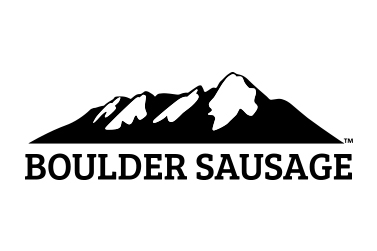What is Gluten, and Why is it Bad for Some People?
Gluten is very controversial these days. Most sources claim that it is safe for everyone except those who have celiac disease. On the other hand, some health experts believe that gluten is harmful for most people.
According to a recent survey, more than 30% of Americans actively try to avoid eating gluten. This article explains what gluten is, and how it can affect your health.
What is Gluten?
Gluten is a family of proteins found in grains like wheat, rye, spelt and barley. Of the gluten-containing grains, wheat is by far the most commonly consumed. The two main proteins in gluten are glutenin and gliadin. Gliadin is responsible for most of the negative health effects. When flour is mixed with water, the gluten proteins form a sticky network that has a glue-like consistency. This glue-like property makes the dough elastic, and gives bread the ability to rise when baked. It also provides a chewy, satisfying texture.
Interestingly, the name glu-ten is derived from this glue-like property of wet dough.
Bottom Line: Gluten is a family of proteins found in grains like wheat, spelt, rye and barley. Gliadin and glutenin are the two main gluten proteins.
Why is Gluten Bad for Some People?
Most people tolerate gluten just fine. However, it can cause problems for people with certain health conditions. This includes celiac disease, gluten sensitivity, wheat allergy and some other diseases.
Celiac Disease
Celiac disease, also spelled as coeliac disease, is the most severe form of gluten intolerance. It affects about about 0.7–1% of the population. It is an autoimmune disorder, and involves the body treating gluten as a foreign invader. The immune system attacks the gluten, as well as the lining of the gut. This damages the gut wall, and may cause nutrient deficiencies, anemia, severe digestive issues and an increased risk of many diseases.
The most common symptoms of celiac disease are digestive discomfort, tissue damage in the small intestines, bloating, diarrhea, constipation, headache, tiredness, skin rashes, depression, weight loss and foul-smelling feces. However, some people with celiac disease do not have digestive symptoms, but may have other symptoms like tiredness or anemia. For this reason, celiac disease can be very difficult to diagnose. In fact, up to 80% of people with celiac disease don’t know that they have it.
Bottom Line: Celiac disease is an autoimmune disorder that makes the body attack gluten in the digestive system. This can cause severe digestive disorders and other health problems.
Non-Celiac Gluten Sensitivity
There are many people who do not test positive for celiac disease, but still react negatively to gluten.
This condition is called non-celiac gluten sensitivity. It is currently not known how many people have this condition, but it has been estimated to be in the range of 0.5–13%.
Symptoms of gluten sensitivity include diarrhea, stomach pain, tiredness, bloating and depression. There is no clear definition of non-celiac gluten sensitivity, but the diagnosis is made when a patient reacts negatively to gluten, but celiac disease and allergies have been ruled out. However, some experts believe this isn’t a real condition. They think the adverse effects are imaginary or caused by substances other than gluten.
One study looked at almost 400 people with self-diagnosed gluten intolerance, and investigated whether they improved on a gluten-free diet. The results showed that only 26 people had celiac disease, while 2 had a wheat allergy. Only 27 of the remaining 364 people were diagnosed as gluten sensitive. That means that of the 400 who thought they were gluten intolerant, only 55 people (14.5%) actually had an issue with gluten.
Therefore, many people who think they’re gluten intolerant actually have other causes for their symptoms.
Bottom Line: Many people react negatively to gluten but do not have celiac disease. This condition, known as non-celiac gluten sensitivity, is controversial.
Irritable Bowel Syndrome, Wheat Allergy and Others
Irritable bowel syndrome (IBS) is a common digestive disorder that causes symptoms like abdominal pain, cramping, bloating, gas and diarrhea. It’s a chronic condition, but many people are able to manage their symptoms with diet, lifestyle changes and stress management. Interestingly, studies have shown that some individuals with IBS may benefit from a gluten-free diet.
For about 1% of the population, a wheat allergy may be causing digestive issues after consuming gluten.
Furthermore, studies have shown that a gluten-free diet may benefit some individuals with schizophrenia, autism and a disease called gluten ataxia .
Bottom Line: Gluten may be problematic for people with irritable bowel syndrome and wheat allergy. People with schizophrenia, autism and gluten ataxia may also benefit from a gluten-free diet.
How To Know if You’re Gluten Intolerant
Digestive discomfort is the most common indication of gluten intolerance. You may also have anemia or trouble gaining weight. To figure out what’s causing your discomfort, ask your doctor to check for celiac disease first.
There are two main ways to find out if you have celiac disease:
- Blood tests: There are several blood tests that screen for antibodies. The most common one is called the tTG-IgA test. If that is positive, a tissue biopsy is usually recommended to confirm the results.
- Biopsy from small intestine: A health professional takes a small tissue sample from the small intestine, which is analyzed for damage.
If you think you may have celiac disease, you should consult with your doctor before trying a gluten-free diet. This makes it easier to get a correct diagnosis. If you don’t have celiac disease, the best way to find out if you are sensitive to gluten is to follow a strict gluten-free diet for a few weeks to see if symptoms improve. Then, you’ll have to introduce gluten back into your diet and see if your symptoms return. If your symptoms don’t improve on a gluten-free diet, and don’t get worse when you re-introduce gluten, then the culprit is probably something other than gluten.
Bottom Line: If you think you react negatively to gluten, you should consult with your doctor to see if you have celiac disease. If that’s ruled out, a gluten-free diet may help determine if you’re actually gluten intolerant.
FODMAPs Can Also Cause Digestive Issues
FODMAPs are short-chain carbohydrates found in many foods, including wheat. Many people are unable to digest these properly, which can cause various digestive symptoms. In fact, there is some evidence that many people with “gluten sensitivity” are actually sensitive to FODMAPs, not gluten. One study of 37 people with self-reported gluten sensitivity placed participants on a low-FODMAP diet, which reduced symptoms. The participants were then given isolated gluten, which did not affect their digestive symptoms. This indicates that FODMAPs may be the true culprit for many people who think they react negatively to gluten.
Bottom Line: FODMAPs are short-chain carbohydrates found in many foods, including wheat. They may be the true culprit for many people who think they react negatively to gluten.
Which Foods Are High in Gluten?
The most common sources of gluten in the diet are:
- Wheat
- Spelt
- Rye
- Barley
- Bread
- Pasta
- Cereals
- Beer
- Cakes, cookies and pastries
Wheat is also added to all sorts of processed foods. If you want to avoid gluten, then you better start reading food labels.
Bottom Line: The most common dietary sources of gluten are wheat, spelt, rye, barley, bread, pasta, cereals and baked goods.
How to Safely Do a Gluten-Free Diet
Starting a gluten-free diet may be rather challenging to begin with. The first thing you need to do is start reading the labels on everything you eat. You’ll soon realize that gluten, especially wheat, is added to a surprising number of foods. You should also eat mainly whole, healthy foods, as most whole foods are naturally gluten-free. Avoid processed food, cereals and grains that contain gluten.
Gluten-Free Grains
There are a few grains and seeds that are naturally gluten-free. These include:
However, while oats are naturally gluten free, they may be contaminated by it. Therefore, it is safest to only consume oats with a gluten-free label.
Gluten-Free Foods
There are plenty of healthy whole foods that are naturally gluten-free, including:
- Meat
- Fish and seafood
- Eggs
- Dairy products
- Fruits
- Vegetables
- Legumes
- Nuts
- Tubers
- Fats, such as oils and butter
- Herbs and spices
As a rule of thumb, it’s better to choose foods that are naturally gluten-free, rather than processed gluten-free products. These tend to be low in nutrients and high in added sugar or refined grains. Most beverages are also gluten-free, except beer (unless it says it’s gluten-free). For more details on following a gluten-free diet, read this: The Gluten-Free Diet: Everything You Need to Know (Literally).
Bottom Line: There are plenty of foods and grains that are naturally gluten-free. Try to choose mostly healthy, whole foods.
Should Everyone Avoid Gluten?
For the vast majority of people, avoiding gluten is unnecessary. However, for people with certain health conditions, removing gluten from the diet can make a huge difference. Furthermore, the diet is usually harmless to try. There is no nutrient in gluten grains that you can’t get from other foods. Just make sure to choose healthy foods. A gluten-free label does not automatically mean that a food is healthy.
Gluten-free junk food is still junk food.
Resources:
https://authoritynutrition.com/what-is-gluten/
https://celiac.org/celiac-disease/understanding-celiac-disease-2/what-is-celiac-disease/
Is Boulder Sausage Gluten Free?
We know that for many of you, your family and friends comes first. Serving them fresh food with natural ingredients can be challenging, especially when diet restrictions are a concern. When you want to serve the best, we want to make it easy for you. We want you to be confident in your buying decision that what you serve is healthy and nutritious, but also safe for your family members with allergy concerns and dietary restrictions. We’re extremely proud that our entire product line (yes, even the beer brats) is truly Gluten Free.
Check out some of amazing Gluten Free dishes over on our recipes page!

